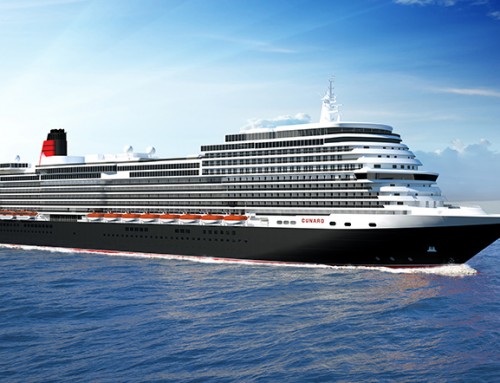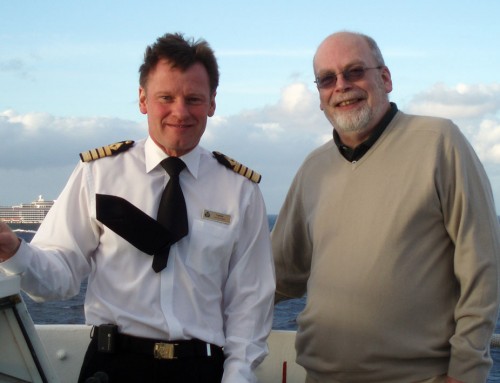The rising cost of fuel is about to hit cruise fares, and a number of UK lines have recently announced they are imposing fuel supplements – or in some cases increasing their surcharges.
Passengers hate them, cruise lines don’t like imposing them, but they are an inevitable result of the record price of oil, which anyone who has to fill a car with petrol or diesel can’t help noticing. The black stuff in ships’ bunkers looks rather different from what flows out of the pump at a filling station – it’s what’s left after lighter fuels have been distilled off – but the prices are inextricably linked.
The supplements are complicated business, so I have attempted to summarise the situation as best I can.
Cunard and P&O both introduced fuel supplements on bookings made from January 1. Each charges £4 per person per day on top of the advertised fare, with a maximum of £150 per passenger per cruise – which is helpful for those on lengthy world voyages, but makes no difference to most passengers on shorter trips.
Fred Olsen changed their charging system last week. From an additional daily amount, they have now switched to imposing a supplement calculated as a percentage of the fare, with no upper limit. For every thousand pounds of the ticket price, the surcharge adds an extra £55. And because of the way it is calculated, passengers in suites will now pay considerably more than those in inside cabins – even though the ship will be using the same amount of fuel to transport them.
All Leisure Group, which operates Voyages of Discovery, Swan Hellenic and Hebridean Island Cruises, announced last week they would be imposing supplements on cruises sailing after April 30 and booked after February 1. They did not say how much, but I have learned that it will be £4 a day, to a maximum of £150 per passenger per cruise, and that it will apply only on Discovery and Minerva, and not Hebridean Princess.
The latest to add the supplement is Cruise & Maritime Voyages, operators of Marco Polo and Ocean Countess. From February 1, the additional cost is £4 a day, with a top limit of £100.
One company not planning to impose surcharges is Saga which operates Saga Ruby and Saga Pearl II, together with affiliate brand Spirit of Adventure.
Head of communications, Paul Green, says the supplements are “destroying consumer confidence,” adding “If you run a business properly, you should not have to resort to such measures,” he said. “Companies can hedge their fuel purchases and should be able to price their products accordingly. It is unfair on passengers, and doubly unfair if these companies have already hedged their fuel anyway.”
Saga customers also have the benefit of the company’s price promise – automatically passing on the value of any savings if the cruise fare is reduced after a booking has been confirmed. One couple has benefitted from this to the tune of more than £10,000.
All Leisure announced their fuel supplement at the same time as reporting a loss of £2.1 million on last year’s operations, compared with a profit of £2.6 million in 2009, and disclosed figures which showed their ships were sailing at 77 per cent capacity during the winter, and 48 per cent of their cabins are still available for booking during the summer.
They were quick to explain to me that these figures are better than 12 months ago – and of course the summer figures will improve as more people book.
In November 2009 the company bought another ship, the Alexander von Humboldt, and they have yet to announce which flag it will sail under when they bring it into service. The 15,350-ton ship – which carried 508 passengers under its previous configuration – is currently in Genoa, where work is being carried out to add 18 passenger cabins and 24 balconies.
All Leisure’s CEO, Ross Jobber, told me: “No final decision has yet been made as to how the ship will be incorporated into the group and
I understand the company has so far spent about $29 million buying and upgrading the ship, and that a recent valuation declared it to be worth substantially more than this outlay.
Meanwhile, away from surcharges, MSC is giving things away – two people making bookings during February can claim FREE flights from Gatwick and Heathrow, FREE transfers from their destination airport to the ship, FREE cabin upgrades, and £50 on-board credit.
The offers apply to Mediterranean cruises this year. The upgrade offers will be applied so that on Lirica class ships passengers will move from inside cabin to outside cabin and outside cabin to balcony cabins; on Fantasia and Musica class (seven-night itineraries) outside cabin to balcony cabins and on Musica class (eight-night itineraries) inside cabin to balcony cabins.
As an example, a seven night cruise on board MSC Magnifica travelling on November 5 visiting Venice, Bari, Katakolon, Izmir, Istanbul and Dubrovnik will cost from £599 per person with flights, transfers, on board credit and upgrade all included.
Perhaps the other cruise lines should ask MSC how they do it – it can’t be because fuel is cheaper in Italy. Can it?





Leave A Comment